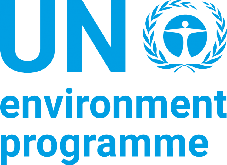This story was first published here.
On the International Day of Clean Air for blue skies, the World Health Organization (WHO) is looking ahead to the launch of its new Global Air Quality Guidelines to help guide legislation and policies to reduce levels of air pollutants and decrease the burden of disease that results from exposure to air pollution worldwide.
The new guidelines, to be launched on 22 September 2021, provide clear evidence of the damage air pollution inflicts on human health and recommend new air quality levels to protect the health of populations, by reducing levels of key air pollutants, some of which also contribute to climate change.
Air pollution is one of the biggest environmental threats to human health, alongside climate change. WHO estimates that around 7 million premature deaths every year are due to the effects of air pollution, with more than 500 000 of those deaths occurring in the WHO European Region. Concerted action to reduce air pollution would save lives and reduce the burden of disease.
Saving lives
Since the mid-1980s, the WHO European Centre for Environment and Health in Bonn, Germany, has coordinated the development of a series of WHO air quality guidelines. They provide guideline levels for several air pollutants, which if achieved, would result in a significant reduction in the risk to health. The forthcoming WHO Global Air Quality Guidelines cover commonly monitored pollutants, where evidence on health effects from exposure has advanced the most in the past 15 years. These so-called classical pollutants are particulate matter (PM₁₀ and PM₂.₅), ozone (O₃), nitrogen dioxide (NO₂), sulfur dioxide (SO₂) and carbon monoxide (CO).
Improving air quality can enhance climate change mitigation, and climate change mitigation efforts can, in turn, improve air quality, delivering immediate and massive health benefits. As countries are preparing for the next round of negotiations at the United Nations Climate Change Conference due to take place this November in Glasgow, United Kingdom, these guidelines will strengthen the health argument that addressing air pollution goes hand in hand with the global fight against climate change. By promoting environmental sustainability within economic recovery, we can make large steps towards improving air quality, mitigating climate change and saving lives.
